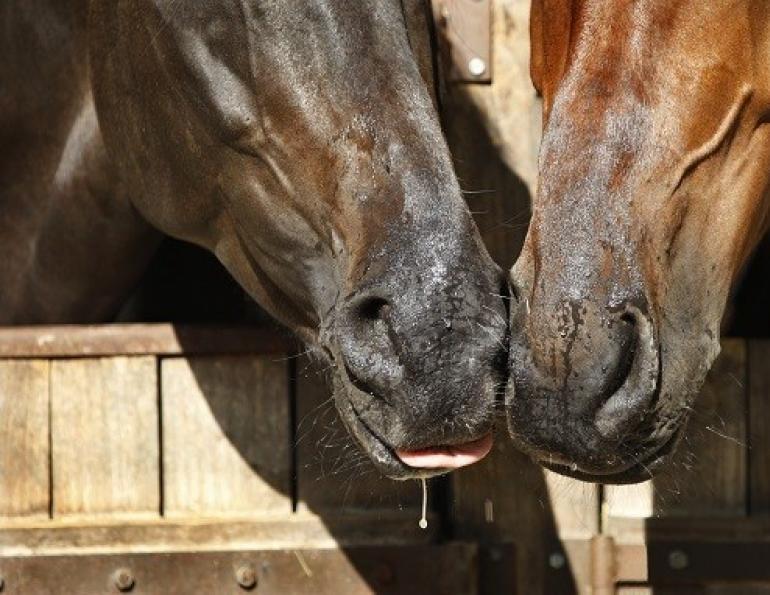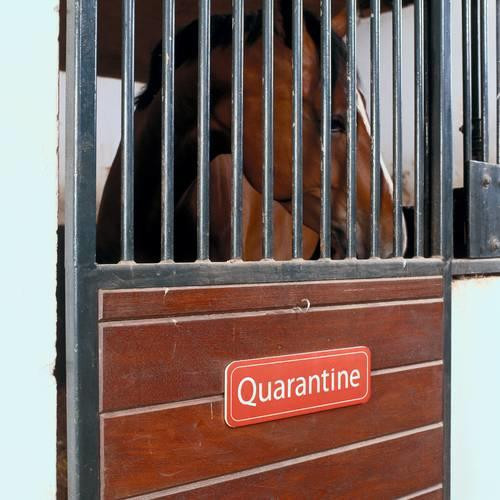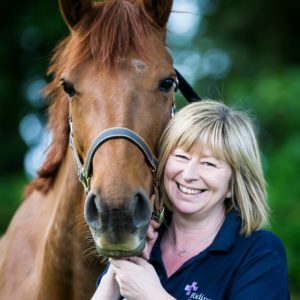Unfortunately the current flu outbreak accelerated during June affecting horses up and down the country with cases identified in West Yorkshire.
Transmission of equine flu occurs through either respiratory or indirect means such as clothing or equipment which means it can spread rapidly through a yard passing from horse to horse.
This leaves us with a few key questions- which hopefully I will be able to help you answer below!

So how do I stop infectious diseases coming onto my yard?
There are steps you can take whilst out competing or schooling to minimise infectious disease transmission including:
- Prevent your horse from touching other horses, particularly nose to nose contact. Equine influenza and Strangles can be spread by nasal discharge.
- Don't let your horse drink from water troughs, take your own water in a container and your own buckets. Ringworm and several other contagious disease can survive in water
- If staying at an event overnight, ask if the stables have been properly disinfected since the last horse vacated it
- Try and prevent members of the public from 'saying hello!' to your horse or pony. This can be difficult but as Equine Flu, Strangles and Equine Herpes Virus can all be transmitted via equipment and people it pays to be careful! You don't know whether the horse they touched before yours has any one of these conditions
What about new arrivals to the yard?
- Ideally isolate for at least two weeks- infectious diseases such as strangles and equine influenza would usually present clinical signs by the end of the isolation period
- Take the temperature of new arrivals daily. The normal temperature for a horse is 37.5 degrees Celsius plus or minus about a degree
- Monitor new arrivals for any signs of illness or disease, nasal discharge, coughing, depression or a high temperature as described above
- Provide equipment, buckets and haynets only to be used for that horse
- If the horse is being looked after by yard staff, make sure that this is the last horse to be mucked out etc on the yard that day
- Requesting a strangles blood sample prior to arrival gives and indication of exposure to this particular disease
- Proof of vaccination status should be provided and if unvaccinated then according to the yard policy vaccination may be requested

What else can I do?
Establish yard protocols:
- What to do if a horse has a temperature, nasal discharge or appears unwell?
- Set up an isolation policy and area where any unwell horses can be quarantined away from healthy horses
- Vaccination protocols- ensuring all horses are up to date with vaccinations and are receiving regular boosters
Be vigilant:
- Any horse that is showing clinical signs such as coughing, high temperature, nasal discharge, depression or reduced appetite should be isolated immediately
- The vet should be called so that any treatment required can be given and samples taken for testing against common pathogens
- Make sure to vaccinate those animals most at risk- the young, old and those who are regularly leaving the yard to compete or train. Pregnant mares should be vaccinated against Equine Herpes Virus also as this can cause abortions or respiratory signs
- Ensure stables/equipment are properly disinfected between horses using a product effective against common contagions

And always remember- the best treatment is prevention!
For further resources including templates for Yard Policies and information on Infectious diseases and vaccination please visit the Keeping Britain's Horses Healthy Scheme website at
https://www.msd-animal-health-hub.co.uk/Healthy-Horses Alex x

